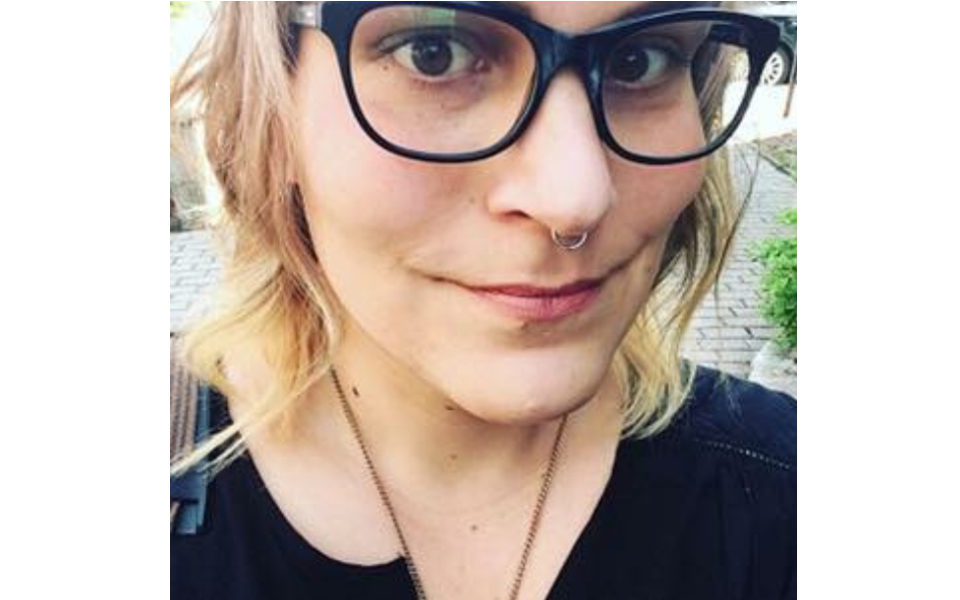
Sophia Banks never wanted to be a journalist.
In 2012, Banks publicly came out as transgender. Following her announcement, her career as a wedding photographer fell apart, as clients cancelled contracts or demanded that she dress like a man for events. Banks took to Twitter to talk about it. As her Twitter traffic increased, publications like Toronto Life interviewed her about her experiences. By 2014, the Globe and Mail and CBC sought her out. They asked her to write for them and to feature her on their radio shows. Despite suddenly becoming a valuable journalistic commodity, Banks still couldn’t pay her bills.
“Wages are shit for journalists–it’s so hard to survive,” Banks says. “It just got frustrating, because all of a sudden, everyone’s wanting these huge interviews from me, and then I’m like, ‘Why am I not writing for myself?’”
Trans women’s voices in mainstream media are rarities. Barbara Freeman, a journalism and communications professor at Carleton University, says that she almost never sees trans voices represented.
“I don’t know any trans people who work in the mainstream media. I know of several in academia, but not in journalism,” Freeman says. “They face the kinds of things that an out lesbian or gay man would have faced 40, 30, or even 20 years ago. It’s been a long struggle.”
Banks shifted from being the featured voice in news pieces to being the writer behind them, gaining over 17,000 Twitter followers. As her popularity grew, Banks became one of the most prominent female trans voices in Canadian media, which made it beneficial for media organizations to share her work.
“At the end of the day, they want clicks on the website. They want to sell ads that lead to revenue,” Banks says. Having amassed a lot of recognition, it was perfect timing for major media outlets to bring Banks on board. But Banks found that news companies, like the CBC and the Globe, limited what she said and wrote about.
Banks discovered that the editors she worked with typecast her as a writer for trans issues only. “The only time I’m ever writing is when it’s a trans-related thing,”Banks says. “You can’t survive off this because I’m pigeon-holed as that angry trans woman. They want me for that.”
The lack of freedom made it hard for Banks to continue writing.
“The thing with trans journalism is, [large publications] are always looking for that ‘this is horrible’ kind of event,” Banks says. “It’s extremely exhausting writing about the worst things––the suicides, the murders, the unfairness. I’m really tired of drowning myself in this sorrow and depression because it’s killing me. What’s the point in this? Where am I going with this career?”
While comment sections are known as no-go zones, Banks finds the comments on her pieces to be more than discouraging.
“I’ve put out three articles. I’ve made $700. That barely covers my rent, and I’m dealing with hundreds of people hounding me, harassing me on Facebook, death threats, and I’m like, ‘This isn’t worth it,’” Banks adds.
One thing Banks never expected to deal with was the threat to her life every time a piece of her work is published.
“I didn’t just have to write the article. I also had to deal with the 500 hate messages that came flooding in through social media, and it’s like, ‘$250 doesn’t seem like it’s really a great amount of money when I’m having to deal with death threats,’” Banks says.
In May 2017, after almost two years in what she calls “semi-retirement,” Banks contributed pieces to Torontoist, CBC and the Globe and Mail. Banks’s return to the industry was sparked by the need to share her voice regarding Jordan Peterson and Bill C-16. The lack of diversity in what Banks is able to write about may drive her into “semi-retirement” again–perhaps permanently.
“As a queer woman who has written about [trans issues], am I ever going to write an article that’s about food? No, because [large publications] want that tie-in,” Banks says. “I may write again down the road, but maybe it’s time for me to step back and let other people speak up.”